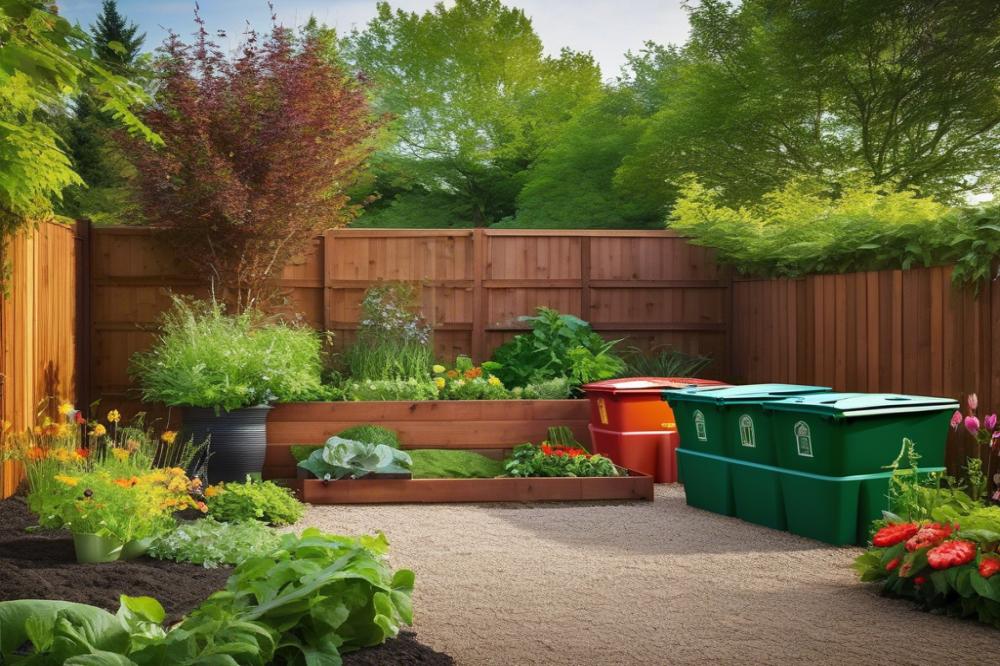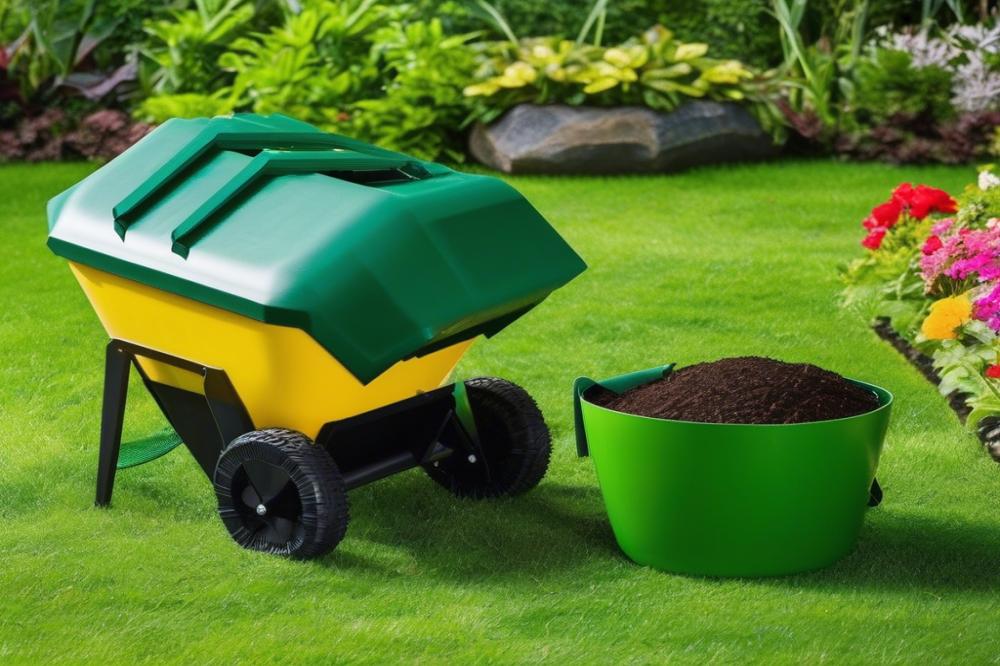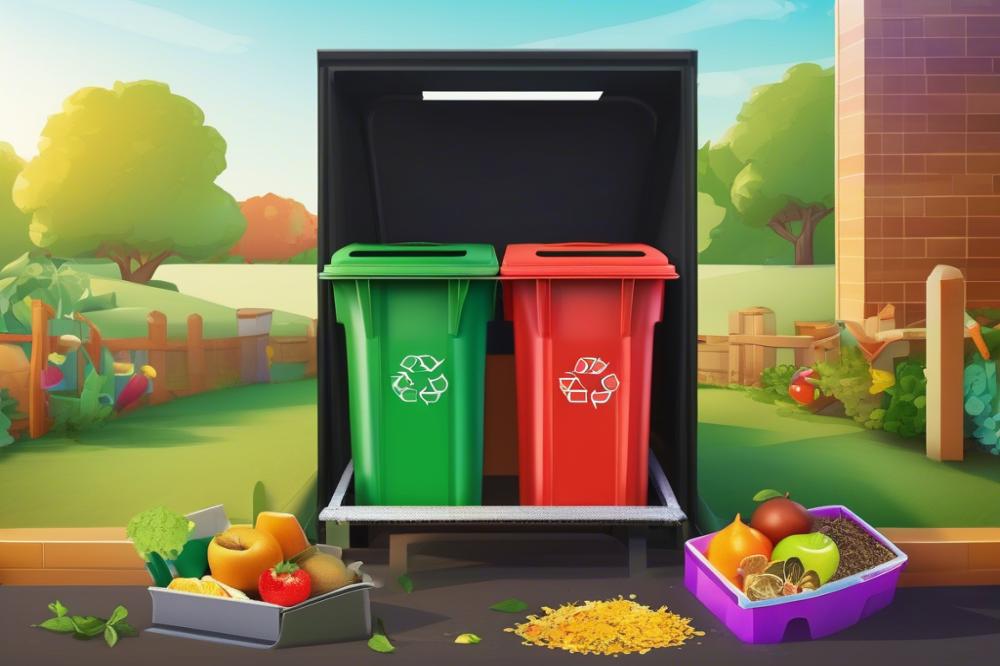Understanding composting and Its Impact
composting is the process of recycling organic waste, turning it into valuable nutrient-rich soil. This practice plays a vital role in gardening. It not only enriches the soil but also promotes better plant growth and sustainability. When gardeners use compost, they enhance soil health and increase moisture retention.
Compost bins and tumblers are popular tools for this efficient waste management. These containers make it easy to gather kitchen scraps, yard waste, and other organic materials. With compost bins, you can create a static pile, while tumblers allow for faster mixing and aeration. Each option has its own advantages, catering to different gardening needs.
Using composting practices contributes significantly to environmental benefits. For one, it helps with greenhouse gas reduction. When organic waste breaks down in landfills, it produces methane, a harmful greenhouse gas. Composting prevents this by allowing organic materials to decompose naturally. Furthermore, nutrient recycling occurs when compost enhanced soil returns valuable nutrients to the earth. Adopting eco-friendly practices not only supports personal gardens but also aids in the larger effort towards sustainability.
The Role of Composting in Sustainability
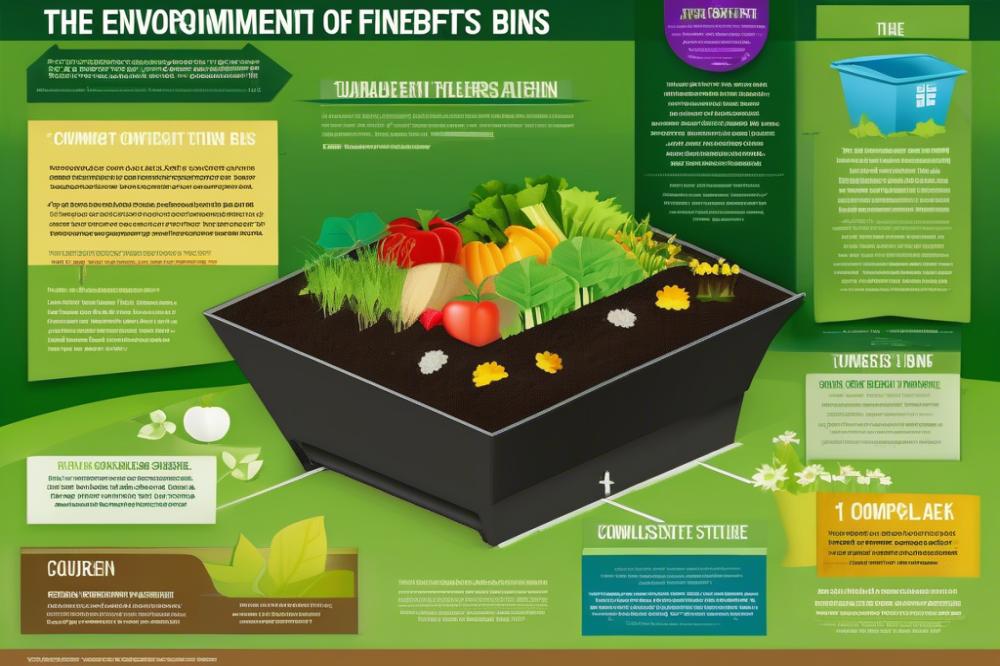

Sustainability in gardening means making choices that protect our environment while still enjoying our green spaces. It’s about being responsible. Eco-friendly practices go a long way toward a thriving planet. One of the best ways to practice sustainability is through managing organic waste effectively.
Organic waste includes food scraps, yard clippings, and other biodegradable materials. Instead of throwing these items in the trash, think about using compost bins or compost tumblers. These tools help convert waste into rich soil. By recycling nutrients, less waste ends up in landfills. This shift not only makes garden soil healthier but also plays a role in reducing greenhouse gas emissions.
Landfills are one of the largest sources of methane, a potent greenhouse gas. When organic materials break down in these sites, they release harmful gases that contribute to climate change. By choosing to compost, you can help minimize this impact. It’s a simple act that has significant benefits for the Earth.
Adopting a circular economy mindset further enhances the practice of gardening. Instead of viewing waste as something to discard, consider it a resource. Composting flips the script, turning scraps into valuable nutrients for future plants. This cycle supports soil health and creates a sustainable future for gardening.
In conclusion, embracing composting is a practical way to practice sustainability. It aligns perfectly with eco-friendly values. When you increase awareness of your waste, you contribute positively to the environment. Your yard and the planet will thank you!
Enhancing Soil Health Through Composting
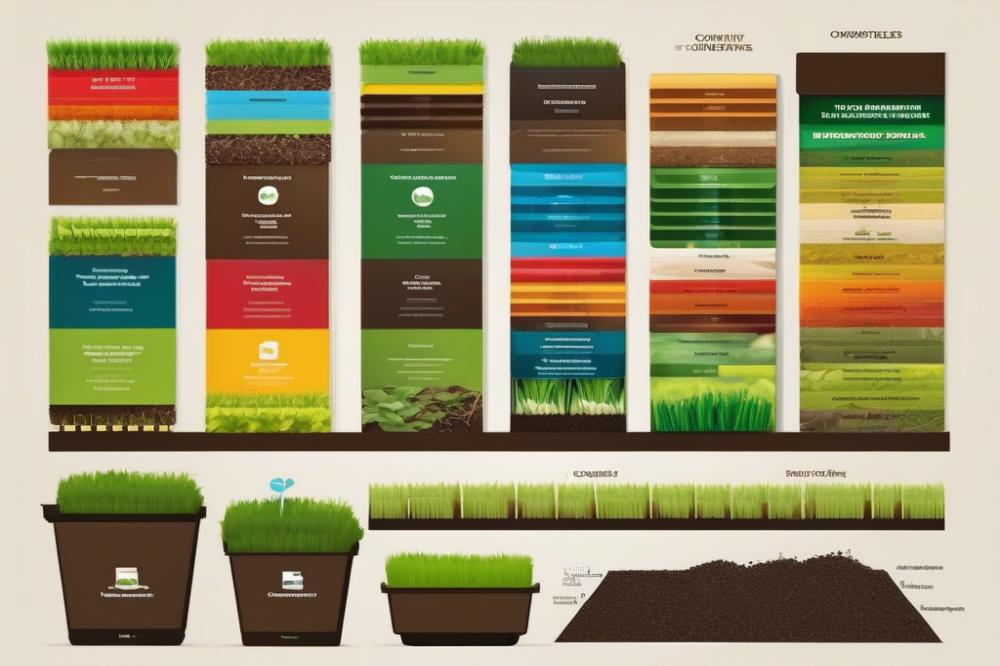

Soil health is essential for successful gardening. Healthy soil supports robust plant growth and increases yields. By using compost bins or compost tumblers, you can effectively recycle organic waste. This eco-friendly practice greatly enhances the nutrients available to plants.
Improving soil structure is another significant advantage. Compost introduces a rich mix of organic matter, helping soil retain moisture and nutrients. Plants thrive in this enriched environment, leading to a stronger garden. Nutrient recycling not only helps your plants but also reduces reliance on chemical fertilizers.
In gardens where compost is regularly added, the results speak for themselves. Gardens become lush and vibrant, with plants showing noticeable growth. Healthy soil promotes biodiversity, which is crucial for a thriving ecosystem. Tiny organisms, like earthworms and beneficial bacteria, flourish when compost is part of the soil.
These small but mighty creatures play a vital role in breaking down organic material. As they work, they produce natural fertilizers that plants eagerly absorb. This process contributes to greenhouse gas reduction by limiting the amount of waste that ends up in landfills. Implementing sustainable waste management through composting benefits not just your garden but the environment as a whole.
Many gardeners today are embracing these eco-friendly practices. By enriching soil with compost, you create a nurturing space for plants. This approach fosters healthy gardens and supports the planet in valuable ways. Truly, enhancing soil health through composting is a win-win for gardeners and the Earth alike!
Greenhouse Gas Reduction Benefits
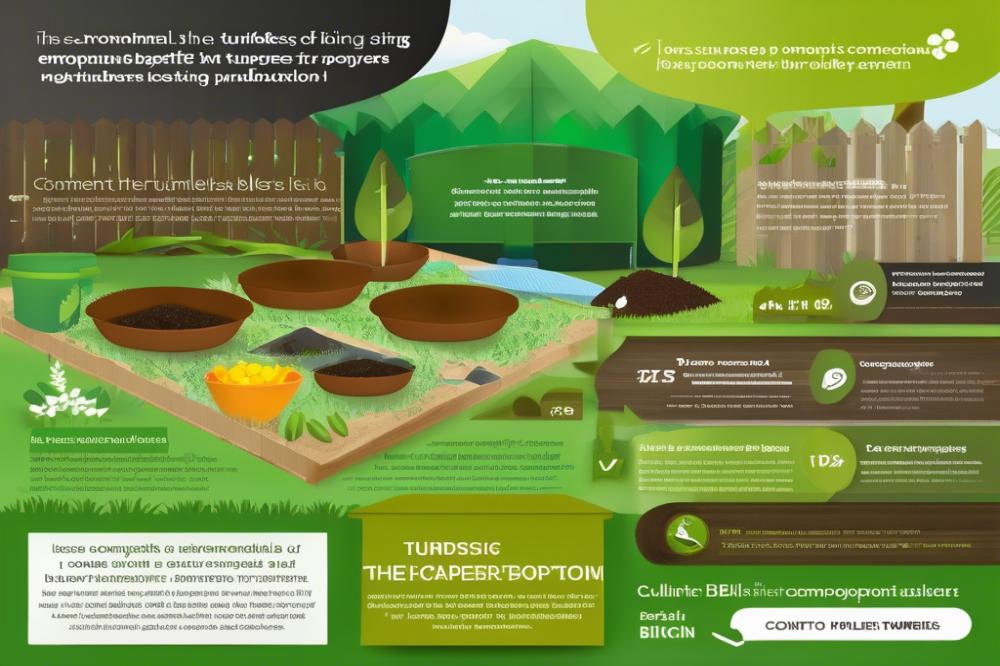

Organic waste in landfills produces a significant amount of greenhouse gas emissions. When food scraps and yard waste decompose anaerobically, they release methane. This gas is much more potent than carbon dioxide, making it a serious environmental concern. Compost bins and tumblers can play a vital role in changing this scenario.
By diverting organic waste from landfills, we actually limit methane production. When waste decomposes in a controlled setting, oxygen is present. This aerobic process generates less methane. Therefore, using compost bins or tumblers helps create eco-friendly practices that reduce our carbon footprint.
Healthy soil is another essential benefit. Compost contributes to carbon sequestration in soils. When carbon is stored in the ground, it helps to combat climate change. A rich soil ecosystem not only absorbs more carbon but also improves soil health, making it a win-win for gardeners and the environment alike.
Landfills create more emissions compared to composting. While decomposing organic waste in a landfill is harmful, composting transforms this waste into a valuable resource. Emissions from traditional waste management methods can be drastically reduced. Additionally, the nutrients from compost enhance soil quality, allowing for better plant growth.
Adopting composting practices does much more than just decrease waste. It provides nutrient recycling that enriches the earth. As we shift towards sustainability, every small step counts. Utilizing compost bins and tumblers can contribute to a healthier planet, one garden at a time.
Choosing Between Compost Bins and Tumblers
Overview of Compost Bins and Tumblers
Composting bins and tumblers are popular tools for anyone interested in sustainable gardening. Compost bins are typically stationary and can hold a large amount of organic waste. They provide a simple way to break down kitchen scraps and yard debris. Tumblers, on the other hand, are designed to rotate. This feature helps mix the materials more efficiently.
Key Differences in Usage and Efficiency
The way these two systems work sets them apart. A compost bin may take longer to fully process organic materials. In contrast, tumblers expedite the breakdown process. Some gardeners prefer tumblers for their speed. They can produce ready-to-use compost in as little as a few weeks. Bins, however, offer more capacity, making them suitable for larger quantities of waste. That’s beneficial for those who generate more organic material.
Advantages of Each Option for Different Gardening Needs
Choosing an option depends on your gardening goals. For those with limited space, a tumbler can be the ideal solution. It takes up less room and makes composting easier to manage. If you have a larger garden and produce substantial waste, a compost bin can fulfill your needs. Its larger capacity is useful for managing a significant amount of organic waste. Many gardeners also appreciate the ability to layer materials in bins. This method aids in nutrient recycling and improves soil health.
Best Practices for Effective Composting
Proper practices make a big difference in composting success. Always balance green materials like fruit scraps with brown materials, like dried leaves. This method helps create an optimal environment for decomposition. Also, remember to aerate your compost. For bins, turning the pile regularly is key. If using a tumbler, spin it often for the best results. Moisture is essential too. Keeping your compost damp, but not soggy, encourages microbial activity. Finally, monitor the temperature. A hotter pile breaks down waste more efficiently, contributing to greenhouse gas reduction as well. Adopting these eco-friendly practices will enhance both your experience and your garden’s growth.
Integrating Composting into Eco-Friendly Practices
Eco-friendly gardening practices are more important than ever. Many gardeners seek to create sustainable landscapes that benefit both the environment and their plants. These methods involve using natural techniques to improve soil health and support biodiversity. They also aim to minimize the use of chemical fertilizers and pesticides.
In this context, compost bins and tumblers play a vital role. They are not just tools for recycling organic waste; they are key elements in comprehensive waste management systems. By recycling kitchen scraps and garden debris, we can divert a significant amount of waste from landfills. This practice helps in reducing greenhouse gas emissions that contribute to climate change.
Community composting initiatives can also have a huge impact. Local groups can set up composting stations, encouraging more people to get involved. These efforts foster a sense of responsibility among residents. When people see the benefits firsthand, they are more likely to adopt eco-friendly practices in their own gardens.
Moreover, composting fits perfectly into a larger framework of environmental responsibility. It demonstrates a commitment to sustainability and inspires action. Educating others about the benefits of nutrient recycling can lead to healthier urban gardens and improved local ecosystems. Each step taken towards reducing organic waste contributes to a collective effort in bettering our planet.
Final Thoughts on Composting Bins and Tumblers
Recapping the key environmental benefits of using composting bins and tumblers, we see that they play a crucial role in reducing landfills. By diverting organic waste from disposal sites, these systems contribute to fewer greenhouse gas emissions. Healthier soil naturally leads to stronger plants, which may reduce the need for chemical fertilizers. With rich compost, you’ll nourish your garden while promoting biodiversity.
Adopting a composting bin or tumbler should be a priority for every gardener interested in sustainability. It’s not just about recycling kitchen scraps; it’s about creating a cycle that enriches the earth. Investing time and effort into this practice can yield endless rewards.
Consider this: when you compost, you’re not just cleaning up; you’re taking action to protect our environment. In a world facing environmental challenges, every small effort counts. Why not make a positive impact while gardening? The benefits are clear, and your garden will thrive as a result.
In the end, embracing this practice is an essential step toward sustainable gardening. It connects you to the earth while reducing your carbon footprint. Let’s all commit to making a difference, one composting bin at a time.

